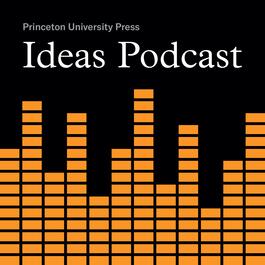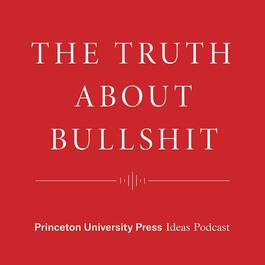
Princeton UP Ideas Podcast
A series of interviews with authors of new books from Princeton University Press
Show episodes
Today we’re continuing our series on Harry Frankfurt’s seminal work, On Bullshit. I have the privilege to speak with Arvind Narayanan co-author of the book AI Snake Oil: What Artificial Intelligence Can Do, What it Can’t, and How to Tell the Difference (Princeton University Press, 2024). Arvind is the perfect guest to
Classicism and Other Phobias (Princeton University Press, 2025) shows how the concept of “classicism” lacks the capacity to affirm the aesthetic value of Black life and asks whether a different kind of classicism—one of insurgence, fugitivity, and emancipation—is possible. Engaging with the work of Sylvia Wynter and ot

Ünver Rüstem, "Ottoman Baroque: The Architectural Refashioning of Eighteenth-Century Istanbul" (Princeton UP, 2019)
In Istanbul, there is a mosque on every hill. Cruising along the Bosphorus, either for pleasure, or like the majority of Istanbul’s denizens, for transit, you cannot help but notice that the city’s landscape would be dramatically altered without the mosques of the city. In Ottoman Baroque: The Architectural Refashionin
In the increasingly competitive world of academia, simply mastering your discipline is no longer enough to guarantee career success or personal fulfillment. The Entrepreneurial Scholar: A New Mindset for Success in Academia and Beyond (Princeton UP, 2025) challenges scholars at all stages—from doctoral students to ten

Audrey Truschke, "India: 5,000 Years of History on the Subcontinent" (Princeton UP, 2025)
Much of world history is Indian history. Home today to one in four people, the subcontinent has long been densely populated and deeply connected to Asia, Africa, Europe, and the Americas through migration and trade. In this magisterial history, Audrey Truschke tells the fascinating story of the region historically know
Before the Greeks and Romans, the Celts ruled the ancient world. They sacked Rome, invaded Greece, and conquered much of Europe, from Ireland to Turkey. Celts registered deeply on the classical imagination for a thousand years and were variously described by writers like Caesar and Livy as unruly barbarians, fearless w



